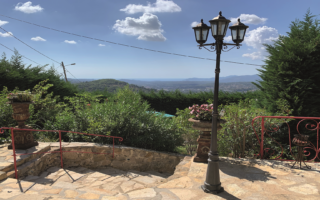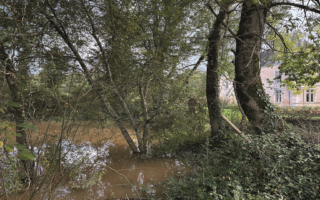Education in France
Widely regarded as one of the best education systems in the world, the French system varies considerably from its UK counterpart…
Compulsory education begins when a child reaches six in France but by then they have already been attending the first tier of the education system for at least two years.
Children as young as two are welcome to start at maternelle, which is the nursery end of the system. Initially they will probably go for half a day but soon they
will be staying from 9am to 5pm with the other children. At this stage, pupils enjoy
activities designed to get them used to the school environment including art and crafts and music.
As the day nears when they will go up to primaire, they learn the basics of reading, writing and maths in readiness for their move. In general, when children take
their first steps in mainstream education, they go to the school nearest to their home; usually in the commune where they live. It is possible to choose another local
school if there is space, particularly once children move on from primaire to coll�ge.
State education is free but parents are expected to provide all the equipment required: pens, pencils, notebooks, folders… you name it, it’s likely to be on the list sent out from teachers to parents ready for the annual rentr�e in September.
However, one thing that won’t be on the list is a uniform – children wear their own
clothes at school in France.
Parents can choose to send their youngsters to a private school or an international school if they prefer. The private school system varies in terms of fee structure and
curriculum. Priv�es sous contrat are usually run by the Catholic Church and follow the same curriculum as state schools but the staff are paid by the state so fees
are typically quite low – around €2,250/�1,914 a year. You don’t need to be a Catholic to attend and there are sometimes facilities for pupils to board on a weekly basis. Priv�es hors contrat are not supported by the state and the fees are consequently higher – around €15,000/�12,760 per year. They are also free to set their own
curriculum. There is also a network of international schools across France, usually in big towns and cities, where children are taught in both English and French.
At primary school the children learn French, history, geography, civic studies, maths, science, technology, physical education, arts, music and a foreign language.
Hilary Newhall who lives in Central France is pleased with how her daughter has adapted to French school: “Our daughter was six when she started school in France and due to an excellent nursery and primary school in the UK, she could already read and write. She brought home a reading book virtually every evening and with the aid of a dictionary, we learned French together. The main problem was maths. Despite being good at maths, she had problems understanding the written instructions. Her teacher was fantastic. When she was struggling I would go into school and ask to
look at her maths book. Nine times out of ten I didn’t understand the French either, so
the teacher would explain how to do the work on the board and then I would explain it to our daughter. Now, thanks to her efforts and that of the teacher she’s bilingual!”
Most children stay to lunch, which as you might expect in France is a proper sit-down, three-course affair that takes up a not inconsiderable amount of the daily
two-hour lunch break. Regular communication is facilitated via the cahier de liaison through which teachers and parents send notes between home and school.
Once pupils move on to college at age 11, they will start to have one eye on their hopes and aspirations for higher education or lyc�e. Secondary education is
compulsory to the age of 16 in France. Children stay at college until they are 15 and at the end of their last year they take the brevet examination in French, maths, history and geography. The brevet is the entrance examination to a lyc�e and as the secondary schools that children attend are primarily determined by where they live, it is
advisable for parents to plan well ahead, particularly if they want their children to attend a particular coll�ge or lyc�e. At lyc�e, children with the greatest academic aptitude go on to study until they are 18. Then they sit their baccalaur�at in
readiness to go on to university if this is the path they wish to take.
Others follow shortened courses at lyc�e or take an apprenticeship. At lyc�e, children are treated more like university students. They don’t have to remain at school when
they don’t have a lesson but the pressure is tough, with monthly tests and formal dissertations used to assess their progress.
Lyc�es are generally huge establishments which, in rural areas, take children from a wide geographical area, and because of the travelling distances involved, many pupils board at school for four nights at week.
There are a number of choices regarding the different types of baccalaur�at depending on a child’s long-term education/career aspirations. Needless to say, each school will be a valuable source of advice to make sure that they make the most of their opportunities and reach their maximum potential. LF
Once pupils move on to coll�ge at age 11, they will start to have one eye on their hopes and aspirations for higher education or lyc�e
? More than 50% of 18-21 year olds in France are still in full-time education or
following a vocational training course.
? France became a secular society in 1905 and this separation of church and
state and the insistence of schools as a religion-free zone which came with it,
goes to the heart of French citizenship
? Schools in France are divided into three geographical zones and some holidays are staggered to limit congestion.
? When English children enter the school system in France they do not automatically receive extra help with French. Check the situation with your school of choice before you enrol.
? The best way to find out about the education options locally to you is by
visiting the mairie in your local commune.
www.education.gouv.fr
WORDS: DEBORAH CURTIS
Living France February 2011
Share to: Facebook Twitter LinkedIn Email


